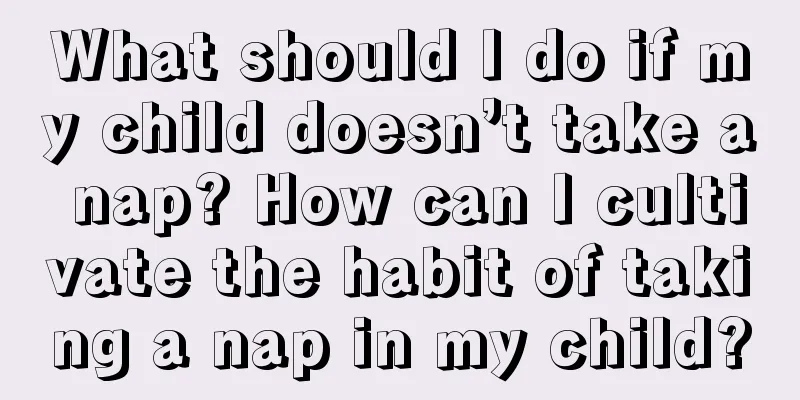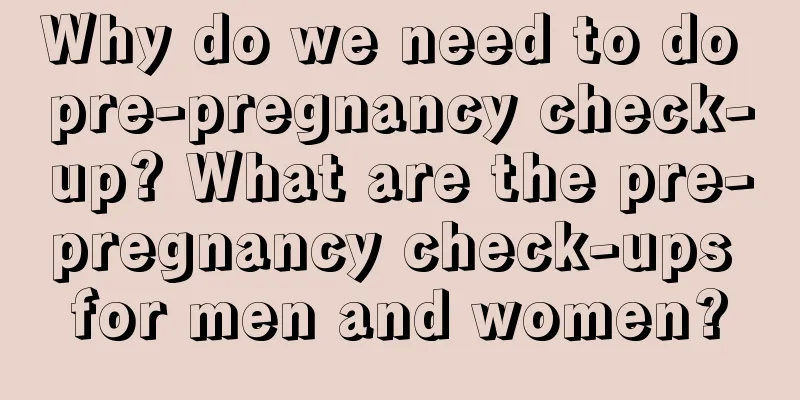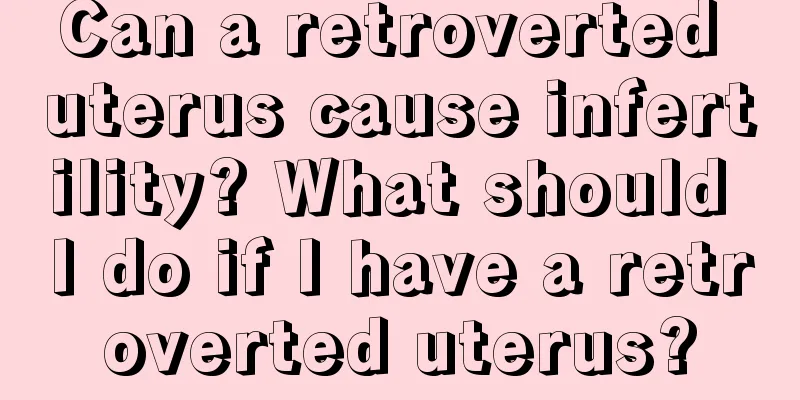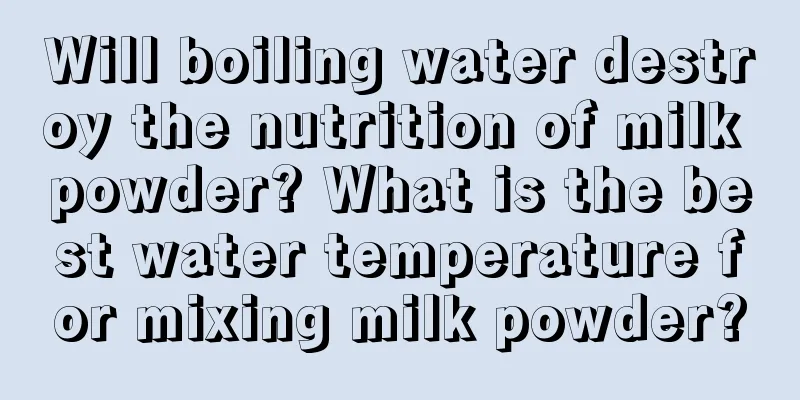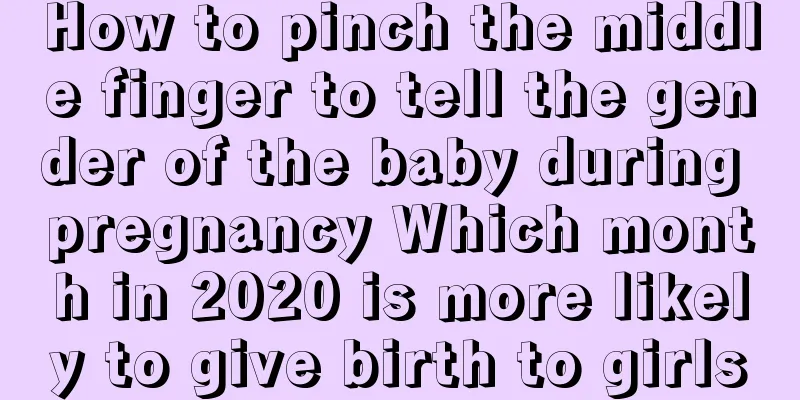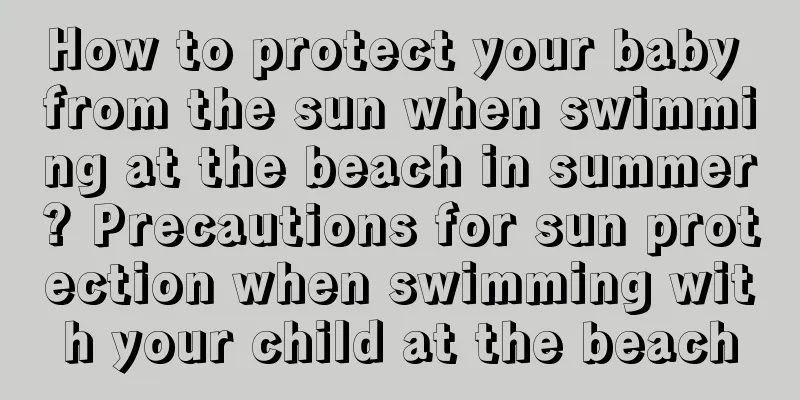Free vaccination schedule for infants and young children Is it better to pay for the vaccination of infants and young children or get it for free?
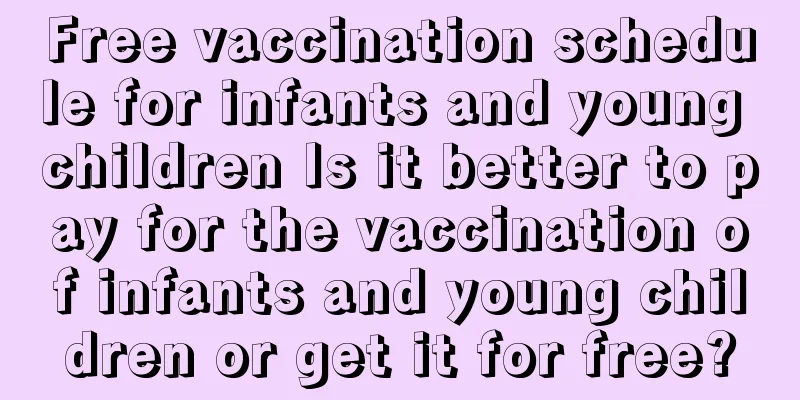
|
In order to strengthen the baby's physique and reduce the risk of infection with epidemic diseases, the relevant national regulations indicate that infants and young children must be vaccinated with relevant vaccines at a certain age. This vaccine is divided into self-paid and free. Do you know the difference between the two? Free vaccination schedule for infants and young childrenWithin 24 hours of birth: Hepatitis B vaccine - first shot; BCG - initial shot; 1 month old: Hepatitis B vaccine - second dose; 2 months old: Polio sugar pills - first shot; 3 months old: polio sugar pills - second shot; diphtheria, pertussis and tetanus vaccine - first shot; 4 months old: polio sugar pills - the third shot; diphtheria, pertussis and tetanus vaccine - the second shot; 6 months old: DPT vaccine - third dose; Hepatitis B vaccine - third dose; Group A meningococcal vaccine - first dose; 8 months: Measles vaccine - first shot; 9 months: Group A meningococcal vaccine - second dose; 1 year old: Japanese encephalitis vaccine - initial vaccination; 1.5 to 2 years old: DTP vaccine - booster; polio sugar pill - partial booster; Japanese encephalitis vaccine - booster; hepatitis A vaccine; 3 years old: Group A meningococcal vaccine - the third dose (group A+C meningococcal vaccines can also be used) 4 years old: Polio vaccine – booster shot; 6 years old: measles vaccine - booster shot; diphtheria-pertussis vaccine - booster shot; Japanese encephalitis vaccine - third shot; Group A meningococcal vaccine - fourth shot; 12 years old: BCG booster shot. The period from birth to 18 months of age is an "intensive period" for vaccination. During this period, parents take their children to relevant units for vaccination once a month on average. Before the age of 6, children need to receive 24 planned immunization vaccines. Is it better to pay for infant vaccination or give it for free?Free vaccines are mandatory by the state, while self-paid vaccines are voluntary. When vaccinating your baby, there are generally two types: self-paid and free. The free ones are required by the state, while the self-paid ones require you to pay for the vaccinations yourself, depending on your financial conditions and ability to accept. However, all free vaccines must be completed, otherwise it will affect your baby's schooling. However, there is no such requirement for self-paid ones. What are the free vaccines?The vaccines provided free of charge by the state are also a category of vaccines, which include: hepatitis B vaccine, BCG vaccine, live attenuated polio vaccine including oral type 1 and type 3 polio live attenuated vaccines, diphtheria, pertussis and tetanus vaccine, leprosy vaccine, measles, mumps and rubella vaccine, live attenuated Japanese encephalitis vaccine, group A meningococcal vaccine, group A plus group C meningococcal vaccine, and live attenuated hepatitis A vaccine. What are the self-paid vaccines?The vaccines that babies pay for include influenza vaccine, virus vaccine, varicella vaccine, Hib vaccine, hand, foot and mouth vaccine, pneumonia vaccine, etc. Generally, communities will remind you to pay for the vaccines yourself, and you can decide whether to give your baby the vaccines at your own expense based on the situation of each family. |
>>: How to restore the uterus after childbirth How to promote uterine recovery
Recommend
Newborns should hold newborns and pay attention to the following points
For many new parents, taking care of a baby shoul...
What are the symptoms of zinc deficiency in children and what causes it
Many children suffer from zinc deficiency because...
What causes premature birth in pregnant women? What are the causes of premature birth in pregnant women?
Everyone must have heard of premature birth in li...
How to educate a picky eater? What to do with a picky eater?
Picky eaters always make parents worry a lot. The...
What talents are better for children to learn? 6 suggestions from doctors
It is the dream of every parent to see their sons...
What material is good for a mommy bag? 4 common materials comparison
First, canvas is economical and practical, but it...
How many times a day is normal for a breastfed baby to defecate? Introduction to the defecation of breastfed babies
How many times a day is normal for breastfed babi...
What type of cough is it when a child has yellow sputum?
It is normal for children to cough, because child...
How about Ariel laundry detergent? Which series of Ariel laundry detergent is the best?
Now, most people use Ariel laundry detergent for ...
Why does my baby wheeze? What causes my baby to wheeze?
Many babies have wheezing problems in winter. Is ...
Which method of delivery is best for pregnant women?
The choice of delivery method by pregnant mothers...
Can calcium supplementation help children grow taller? Is there a direct relationship between height and calcium supplementation?
All mothers hope that their children will grow ta...
What should I do if my baby doesn't eat rice cereal? The timing of adding complementary food is very important.
What to do if your baby doesn't eat rice cere...
The harm of waist stool to mother's lumbar spine. Which brand of waist stool has good quality and comfort?
Waist stools are a very common baby product on th...
How to enlarge breasts after childbirth? What products can quickly enlarge breasts?
The breasts of postpartum women will sag and defo...
